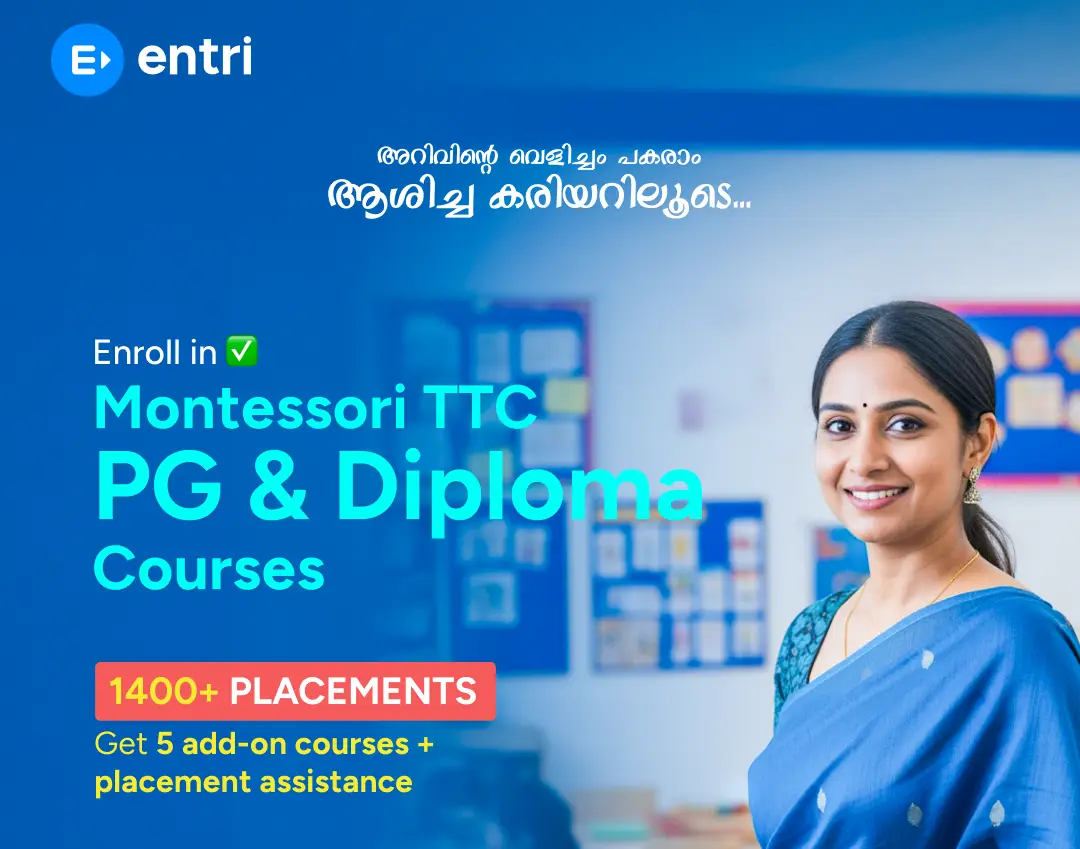Table of Contents
Central Board of Secondary Education (CBSE) conducts CTET exam twice every year to recruit teachers for classes 1 to 8 in Central Government Schools. After CTET certificates candidates can apply for all Central Government teaching jobs like KVS, NVS Army Teacher, ERDO, etc. CTET 2021 exam will be the 15th edition of the exam and will be conducted between 16th December 2021 to 13th January 2022. CTET exams have two papers:
- Paper I for primary teachers of classes 1 to 5
- Paper 2 for elementary teachers of classes 6 to 8
Download the Entri app and start your preparations
Child Development and Pedagogy
Child Development and Pedagogy is one of the important sections of CTET. Pedagogy is about learning, teaching and development, influenced by cultural and social values. The questions in this section test the candidates’ psychology of teaching the children of age group of 6 to 11 years (in paper I) and 11 to 14 years (in paper II). There will be 30 questions in this section for a total of 30 marks. There are no negative markings.
CTET Question Papers – Download Free PDF
CTET Paper 1 and Paper 2 Child Development and Pedagogy
In order to prepare well for the CTET exam, one should have a detailed idea about the syllabus. The topics are same for both Paper 1 and Paper 2. Let us have a look at the topics included in the child development and pedagogy section.
Child development section
- Concept of development and its relationship with learning
- Principles of the development of children
- Influence of Heredity & Environment
- Socialization processes: Social world & children (Teacher, Parents, Peers)
- Piaget, Kohlberg and Vygotsky: constructs and critical perspectives
- Concepts of child-centered and progressive education
- Critical perspective of the construct of Intelligence
- Multi-Dimensional Intelligence
- Language & Thought
- Gender as a social construct; gender roles, gender-bias and educational practice
- Individual differences among learners, understanding differences based on diversity of language, caste, gender, community, religion etc.
- Distinction between Assessment for learning and assessment of learning;
- School-Based Assessment, Continuous & Comprehensive Evaluation: perspective and practice
- Formulating appropriate questions for assessing readiness levels of learners; for enhancing learning and critical thinking in the classroom and for assessing learner achievement.
Concept of inclusive education and understanding children with special needs
- Addressing learners from diverse backgrounds including disadvantaged and deprived.
- Addressing the needs of children with learning difficulties, impairment etc.
- Addressing the talented, creative and specially abled learners.
Learning and Pedagogy
- How children think and learn; how and why children ‘fail’ to achieve success in school performance.
- Basic processes of teaching and learning; children’s strategies of learning; learning as a social activity; social context of learning.
- Child as a problem solver and a ‘scientific investigator’
- Alternative conceptions of learning in children, understanding children’s ‘errors’ as significant steps in the learning process.
- Cognition & emotions
- Motivation and learning
- Factors contributing to learning – personal & environmental
| Topics | Number of questions |
| Child Development | 15 |
| Concept of Inclusive Education & Understanding Children with Special Needs | 5 |
| Learning and Pedagogy | 10 |
| Total | 30 |
The table below names some of the books which are quite helpful in preparing for the child development and pedagogy section.
| Books | Authors/Publishers |
| Child Development & Pedagogy for CTET & STET (Paper 1 & 2) 2nd Edition | Shalini Punjabi |
| CTET and TETs Child Development and Pedagogy Paper 1 and 2 | Arihant Experts |
| A Complete Resource for CTET: Child Development and Pedagogy | Sandeep Kumar |
| Guide to Child to Development and Pedagogy | R. Gupta |
Child Development and Pedagogy Question and Answers PDF
Child Development and Pedagogy MCQ
RCEM approach of lesson planning has classified cognitive objectives into:
(A) 17 categories
(B) 3 categories
(C) 12 categories
(D) 8 categories
Ans: D
Condition necessary for micro teaching is:
(A) Controlled environment
(B) Observation and criticism
(C) Reappeared manifestation of only one skill
(D) All of the above
Ans: D
Having many opportunities to choose from materials and use them at the water table results in an understanding that something float and some do not. With enough time, it may result in an understanding of how to choose materials that will float. It is an example of one of the five elements of Active Learning, known as
(A) Choice
(B) Materials
(C) Manipulation
(D) Adult support
Ans: C
In order to instill a positive environment in a primary class a teacher should
(A) wish each child in the morning
(B) narrate stories with positive endings
(C) allow them to make groups on their own on the basis of sociometry during group activities.
(D) not discriminate and set the same goal for every child.
Ans: D
An empowering school will promote which of the following qualities the most in its teachers?
(a) tendency to experiment
(b) memory
(c) disciplined nature
(d) competitive aptitude
Ans: D










